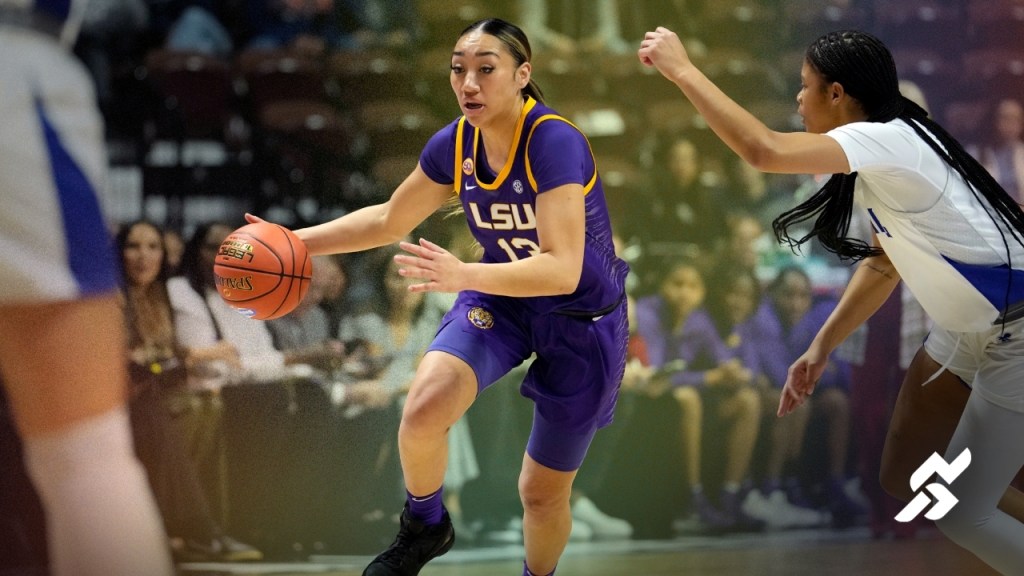U.S. District Judge Brian A. Jackson on Friday denied the U.S. Citizenship and Immigration Services’ motion to dismiss lawsuit brought by Arizona State basketball player Last-Tear Poa. The government denied her requested change in immigration status to make it more possible for her to sign NIL deals.
Poa’s case tests how immigration law limits NIL opportunities for college athletes from other countries and could play a key role in making it more possible for those athletes to earn NIL money. The relationship between immigration law and college sports has drawn scrutiny in recent years. While the NIL market has grown for U.S. college athletes, international student athletes are limited in opportunities to earn NIL money in order to remain compliant with visa requirements.
In July 2024, USCIS denied Poa’s request to change her status from a F-1 student visa to a P-1A athlete. The Australian native sought the change, Jackson explained, “believing that such a status change would permit her to pursue NIL deals for profit while continuing as a full-time student at Louisiana State University.” USCIS denied Poa’s request for failure to demonstrate eligibility.
Last October, Poa filed a lawsuit in a Louisiana federal district court. She hopes the court will, among other things, set aside the agency’s denial as arbitrary and capricious, and state that she meets P-1A requirements as an internationally recognized athlete. Professional athletes who are international can secure P-1A visas to play in the U.S. and profit from endorsement deals.
In January, USCIS motioned for dismissal of the lawsuit on grounds the agency’s decision was correct. As USCIS sees it, the statutory language for a P-1A makes clear it involves a foreign national coming to the U.S. temporarily to be an athlete “solely for the purpose of performing as such an athlete with respect to a specific athletic competition.” The USCIS notes that an NCAA athlete is not solely performing as an athlete since the athlete must also be “full-time student making progress towards her degree.” Along those lines, an NCAA athlete who fails to meet necessary academic requirements will be deemed NCAA ineligible.
Poa disagrees with USCIS’ interpretation of the language. She notes that with an F-1 visa, a court is obligated to find the phrase “temporarily and solely for the purpose of” to include both attending college and participating in an NCAA athletics program. But with a P-1 visa, a court is expected to interpret that same phrase to preclude that dual status. Poa contends this presents a conflict that is unsupported by the statute, case law or agency guidance.
Jackson reasoned that when “viewing the facts in the light most favorable” to Poa—a standard deferential to the plaintiff used for a motion to dismiss—he found it makes sense to deny the motion and further review the matter “with the benefit of the full administrative record.”
The full administrative record includes information the agency had when it denied Poa. The information can include any documents, materials, emails, notes, testimony and other content that shed light on how the agency reached its interpretation of statutory language and applied that interpretation to Poa. These materials will become more accessible during pretrial discovery, a process that follows a judge’s denial of a motion to dismiss.
To be clear, Poa has not—yet, at least—won the case. She will eventually need to advance past a motion for summary judgment, where the government will argue there are no genuine issues of material fact. Also, proving the government acted arbitrarily and capricious will be a high hurdle to meet—it is a standard that accords a good deal of latitude to agencies. Still, Jackson’s ruling keeps Poa’s on the docket and indicates she has a chance to prevail.
Pear is represented by three attorneys: Kyle A. Ferachi of Hinshaw & Culbertson, Ksenia Maiorova of Green & Spiegel and Amy Maldonado of Law Office of Amy Maldonado.
Poa, who joined Arizona State through the transfer portal earlier this year, played three seasons at LSU from 2022 to 2025. The 5-foot-11 guard started 27 of the 102 games in which she appeared. Poa, 23, averaged 3.5 points per game and 2.0 assists. From 2020 to 2022, Poa played at Northwest Florida State College.
Poa’s case could become a game-changer for other international athletes who play D-I sports, which now-a-days offers athletes the chance for NIL and, through the House settlement, revenue share money.
